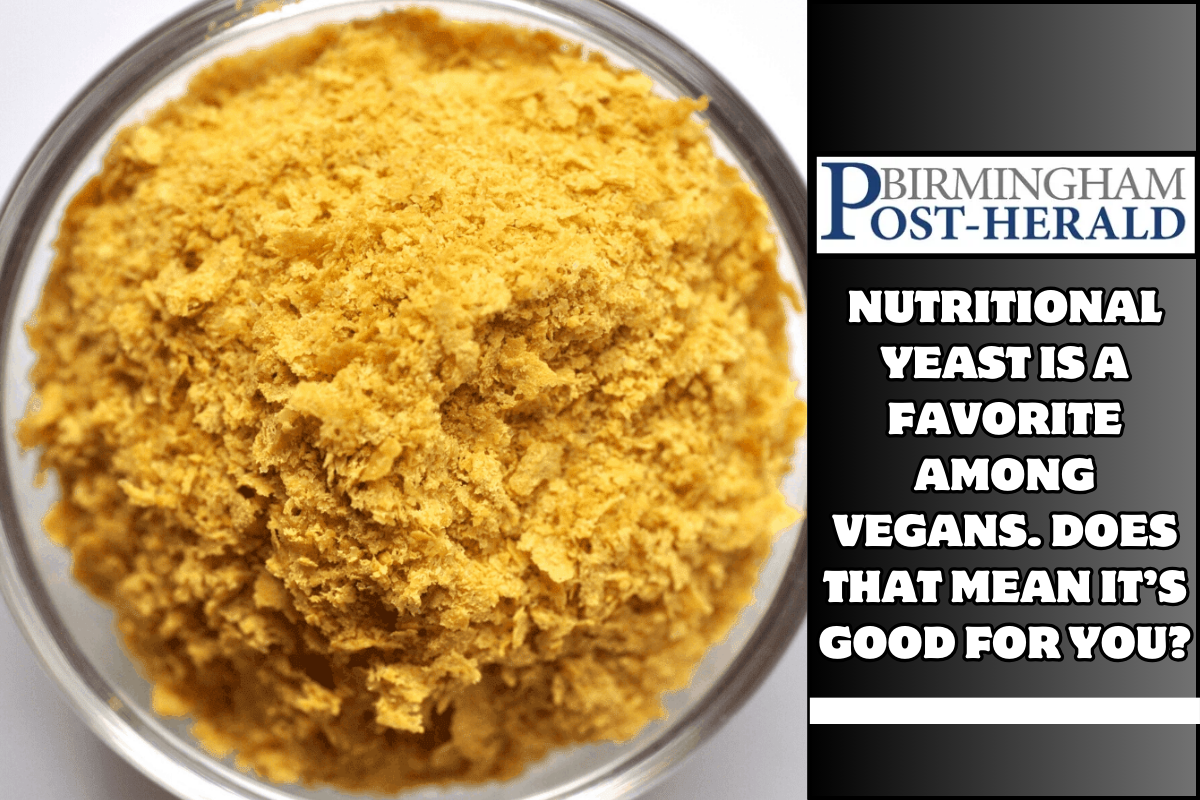Nutritional yeast is a favorite among vegans. Does that mean it’s good for you?:-There is a wealth of advice available in the realm of health and wellness regarding “healthy” alternatives to the meals that you enjoy eating.
Nutritional yeast is frequently praised on the internet as a condiment that does not include dairy but has the flavor of cheese. As a result, it is popular among vegans who are looking to satisfy their craving for cheese.
Nutritional yeast is a favorite among vegans. Does that mean it’s good for you?
Miranda Galati, a certified dietitian, tells USA TODAY that nutritional yeast is an essential component of a vegan diet since it is abundant in B12, a nutrient that is difficult to obtain in sufficient quantities without the consumption of animal products.
As people strive to fulfill their New Year’s resolutions, there has been a significant increase in the number of Google searches for nutritional yeast over the past few years, particularly between the months of December and February. But the definition of what constitutes a “good for you” food varies from person to person; according to Galati, there is no “one size fits all” approach to healthier eating.
“The healthiest food in any category will depend on you, your budget, your culture, your health goals, and a great deal of other factors,” she says. It is wonderful to select choices that are higher in nutrients whenever it is possible to do so; but, it is not always a bad thing to go with the alternative that is more processed or which is more convenient. In my capacity as a registered dietitian who is committed to assisting you in developing a healthy lifestyle that is sustainable, I would suggest that you abandon the notion that there is a healthiest version of anything.
Here is additional information that health professionals want you to be aware of before you take nutritional yeast.
Is nutritional yeast good for you?
Galati goes on to say that nutritional yeast, in addition to having a flavor that is delicious, possesses a “impressive nutritional profile.”
It is important to remember that a serving size of a quarter cup contains three grams of fiber and eight grams of protein derived from plants. In terms of protein, that is roughly equivalent to two tablespoons of peanut butter, and in terms of fiber, it is comparable to the amount that a banana has.
An individual should consume around 28 grams of fiber on a daily basis based on a diet consisting of 2,000 calories, as recommended by the United States Department of Agriculture.

Also Read:-Rainfall returns to northeast after blizzard slams northern California
In terms of protein, the Recommended Dietary Allowance (RDA) of the United States Department of Agriculture states that you should ingest 0.36 grams per pound. With a daily intake of 54 grams of protein, a person who weighs 150 pounds can achieve this goal. However, there are dietitians, such as Galati, who point out that the guideline can change based on other factors, and that it might be more advantageous to consume between 0.7 and 0.9 grams of protein per kg of body weight.
Additionally, nutritional yeast provides “well above your daily requirements for B12 and other B-vitamins,” according to Galati.
In the event that you are a vegan, nutritional yeast may be an excellent way to supplement your diet with additional nutrients that are more difficult to obtain without the consumption of animal products. On the other hand, if you are not vegan, you do not necessarily have to replace your preferred type of cheese with nutritional yeast.
Galati suggests that individuals make an effort to have a greater quantity of lean protein, place an emphasis on fiber and healthy fats, and get a lot of color on their plates. “There are a great many different approaches to accomplishing that.”
Is there any downside to nutritional yeast?
The results of several studies have indicated that individuals who suffer from Crohn’s disease and other forms of inflammatory bowel disease (IBD) may experience irritation when they consume nutritional yeast.
Can I eat nutritional yeast every day?
In general, according to the Mayo Clinic, introducing an excessive amount of fiber into your diet in a short period of time might result in adverse effects such as cramps, bloating, and gas. It is recommended by experts that you gradually increase the amount of fiber foods you consume and give your body time to acclimate.
